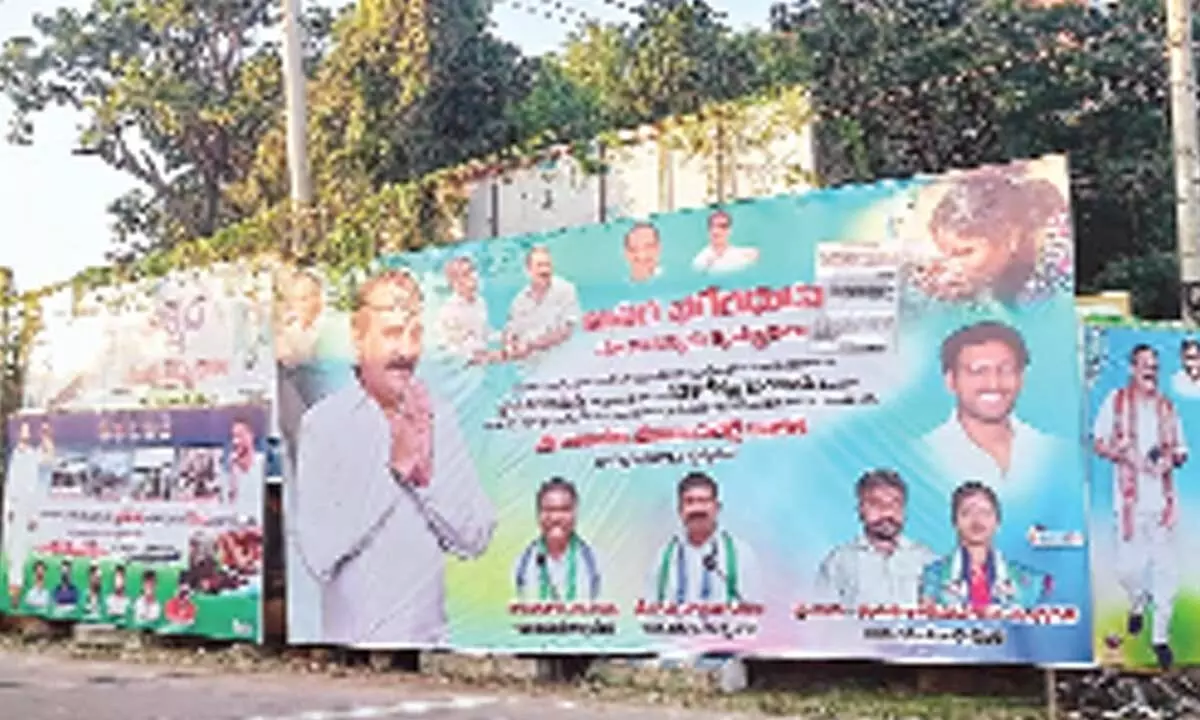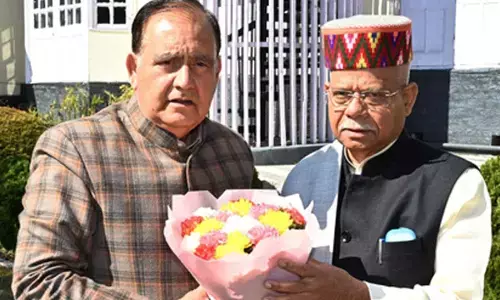Ongole: Flex printers reluctant to switch to cotton banners

File photo of plastic flex boards on display in Ongole
- They say that cotton banners will cost more than plastic
- Demands 50% subsidy on machinery and material for cotton banners
- Ban on plastic flexi banners will come into effect from January 26
Ongole (Prakasam District): As the deadline to ban plastic flex banners in the State is fast approaching, the printers are demanding the government to announce at least 50% subsidy on the machinery and material to switch over to cotton banners. Meanwhile, Prakasam District Collector AS Dinesh Kumar ordered the officials to take measures to ban printing and display of plastic flex banners in the district.
Environment, Forests, Science and Technology department of the AP government issued GO MS No 65 and published it in the gazette on September 22, 2022, banning manufacture, import, print, use, transport and display of all types of plastic flex banners from November 22. The Andhra Pradesh Pollution Control Board officers, the District Collector and officers empowered by the Collector and Municipal Commissioners of urban local bodies were appointed as the enforcing authorities to implement the GO, levy a penalty of Rs 100 per square foot on the seized plastic flex banners along with the expenditure for scientific disposal of the material. The government ordered the Industries and Commerce department to assist the enterprises by ensuring the availability of cotton banner material.
Following the outcry of the printers and criticism from various sections of society, the government postponed the ban on plastic flex banners from November 1, 2022, to January 26, 2023. Now, when the ban on plastic flex banners is around the corner, printers are still unprepared for the switchover and demanding the government to support them.
T Mani, a plastic flex printer in Ongole, said that switching from plastic to cloth flex banners is not as easy as the government thinks. He said, a new medium-speed plastic flex printer of capacity 1200 sq ft per hour costs about Rs 10 lakh, but the used machine can't be sold for more than Rs 1.5 to Rs 2 lakh. Besides, cloth flex banners of same capacity cost about Rs 15 lakh and cost of the material is four to five times more than that of plastic flex material, Mani informed.
Another flex printer S Sambasiva Rao said that they were also worried about the business from now on. He explained that they are charging Rs 5 to Rs 10 per square foot depending on the quantity of the plastic flex, but the customer has to pay about Rs 35 to Rs 50 per square foot for cloth flex banner. Also, print on plastic banner will shine while that on cloth is not very much attractive for the price the customer pays, he added. In that case, Rao was afraid that customers won't give much preference to cloth flex banners and limit themselves to small banners.
The flex printers agreed that the ban on plastic material is environmentally good, but they requested the government to consider their livelihood also. They said that it is an injustice on the part of the government to target them in the name of environment conservation and leaving the people, who are digging away hills, rivers and even villages for soil, sand and granite mining. They demanded the government to announce at least 50% subsidy on printers and alternative banner materials, for at least two years for their sustainability.








